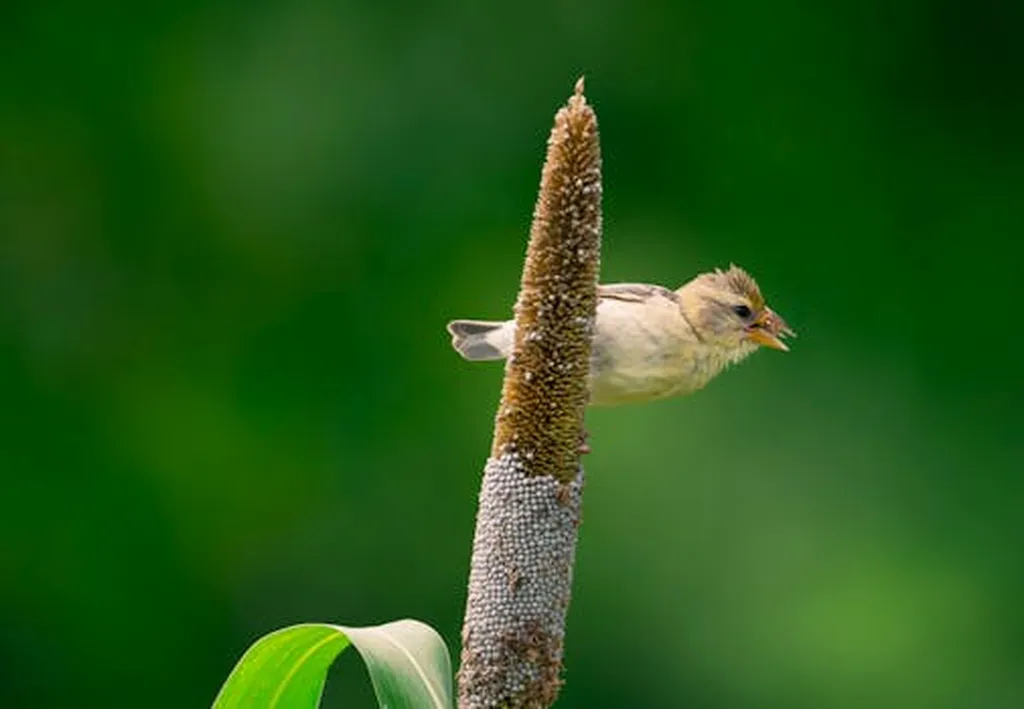In the heart of India, where agriculture is both a way of life and a critical economic driver, a groundbreaking study is set to revolutionize the way we understand and cultivate proso millet, one of the world’s oldest domesticated crops. This research, led by Ayushi Kumar from the Centre for Plant Breeding and Genetics at Tamil Nadu Agricultural University, delves into the chloroplast genomes of proso millet, unlocking potential for molecular breeding applications that could significantly impact the agricultural sector.
Proso millet, known scientifically as Panicum miliaceum, has long been an underexploited resource despite its significant potential for nutrition and yield. The study, published in BMC Plant Biology, addresses this gap by compiling chloroplast genome data for the native variety ATL1 and its mutant derivative TNPmPEM 001. This data is crucial for developing new crop varieties that can withstand the challenges of climate change and variable photoperiods.
The chloroplast genomes of both ATL1 and TNPmPEM 001 exhibited a characteristic quadripartite structure, with identical total lengths, small single-copy (SSC), large single-copy (LSC), and inverted repeat (IR) regions. However, these metrics diverged from the reference genome, highlighting the genetic diversity within proso millet. “This divergence is significant because it provides a foundation for understanding the genetic basis of traits that can enhance yield and resilience in proso millet,” explains Kumar.
One of the most compelling findings of the study is the identification of 11 unique simple sequence repeat (SSR) markers exclusively found in the mutant derivative. These markers offer novel tools for marker-assisted breeding programs aimed at enhancing agronomic traits. “These SSRs are like genetic bookmarks that can help us quickly identify and select plants with desirable traits, such as improved photosynthesis efficiency and stress resilience,” says Kumar.
The study also provides critical insights into the genomic basis of photosynthesis efficiency in underutilized C4 crops like proso millet. By identifying protein-coding genes that regulate key photosynthesis components, the research paves the way for developing crops that can thrive in marginal agroecosystems. This is particularly important for climate-resilient breeding programs, which aim to ensure food security in the face of changing environmental conditions.
The commercial implications of this research are substantial. Proso millet is a crop with immense potential for the energy sector, particularly in the production of biofuels. Its ability to grow in harsh conditions and its high yield make it an ideal candidate for sustainable biofuel production. By enhancing the genetic traits of proso millet through molecular breeding, we can develop varieties that are not only more resilient but also more productive, thereby increasing the supply of raw materials for biofuel production.
Moreover, the study’s findings can be applied to other crops within the Poaceae family, which includes important cereals like wheat, rice, and maize. The insights gained from this research can help breeders develop new varieties of these crops that are better adapted to changing climates and capable of higher yields.
In conclusion, this research represents a significant step forward in the field of agricultural genomics. By unlocking the genetic potential of proso millet, we can develop crops that are more resilient, productive, and sustainable. This not only benefits the agricultural sector but also has far-reaching implications for food security and the energy sector. As we continue to face the challenges of climate change, research like this is crucial for ensuring a sustainable future.

